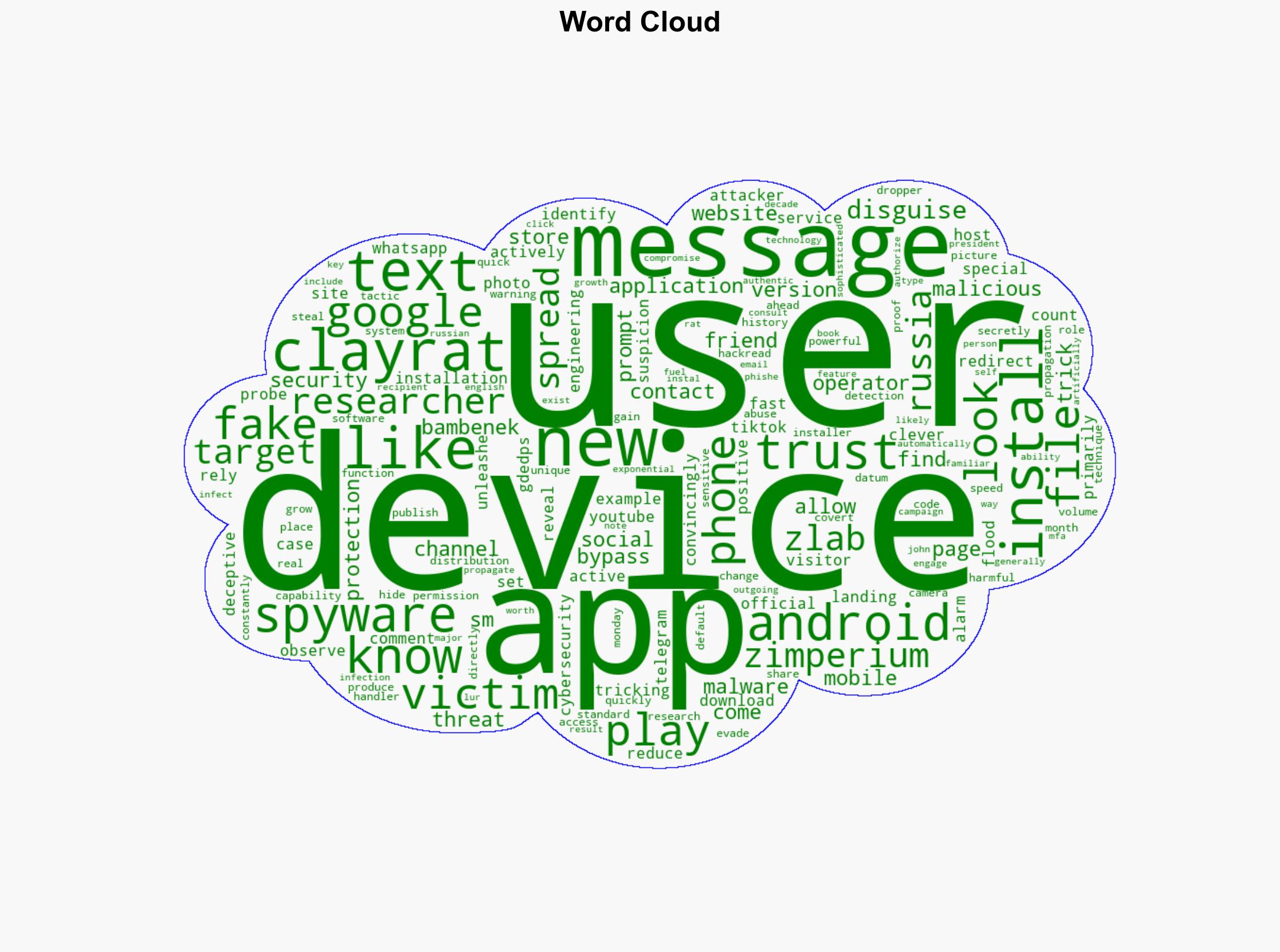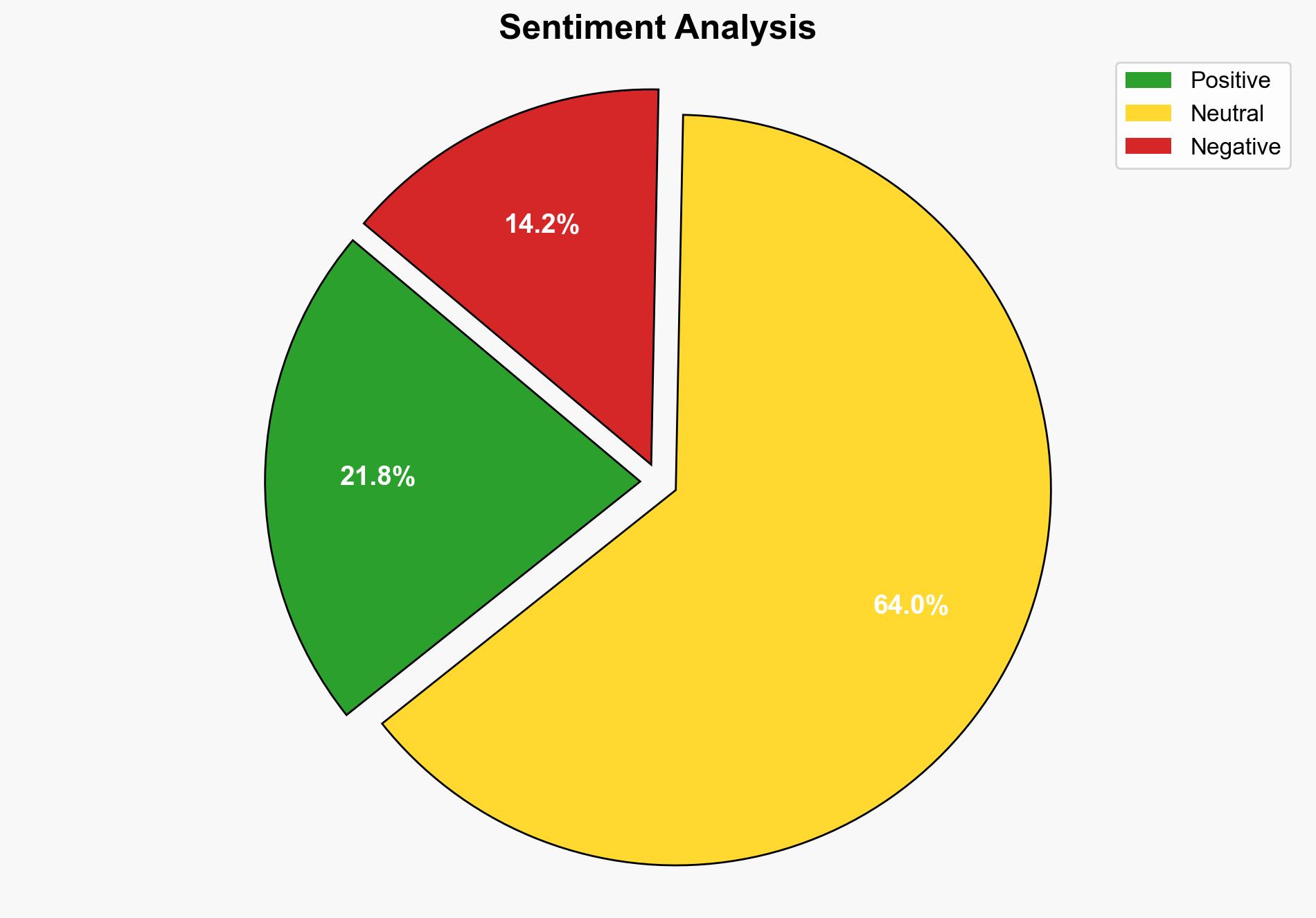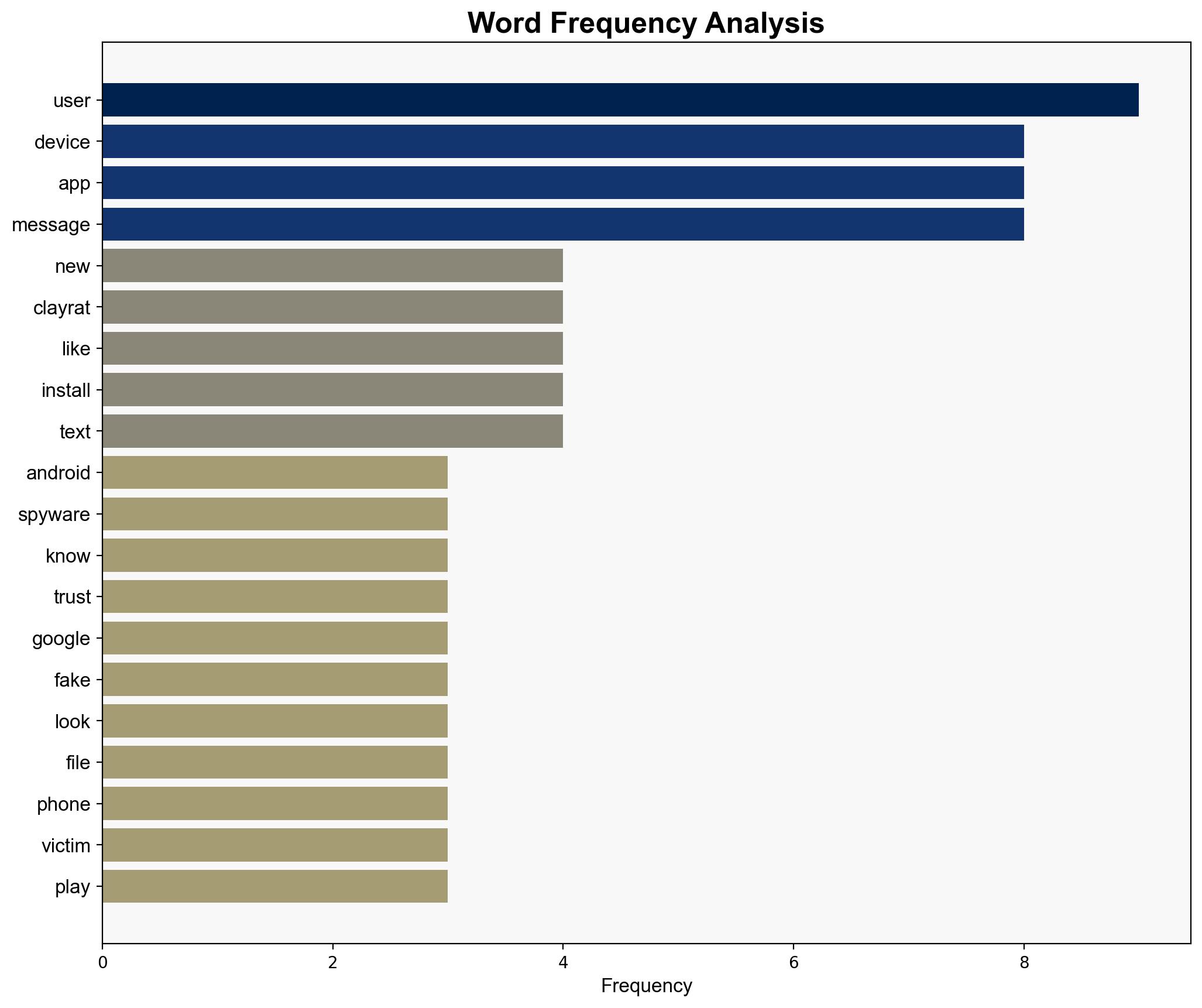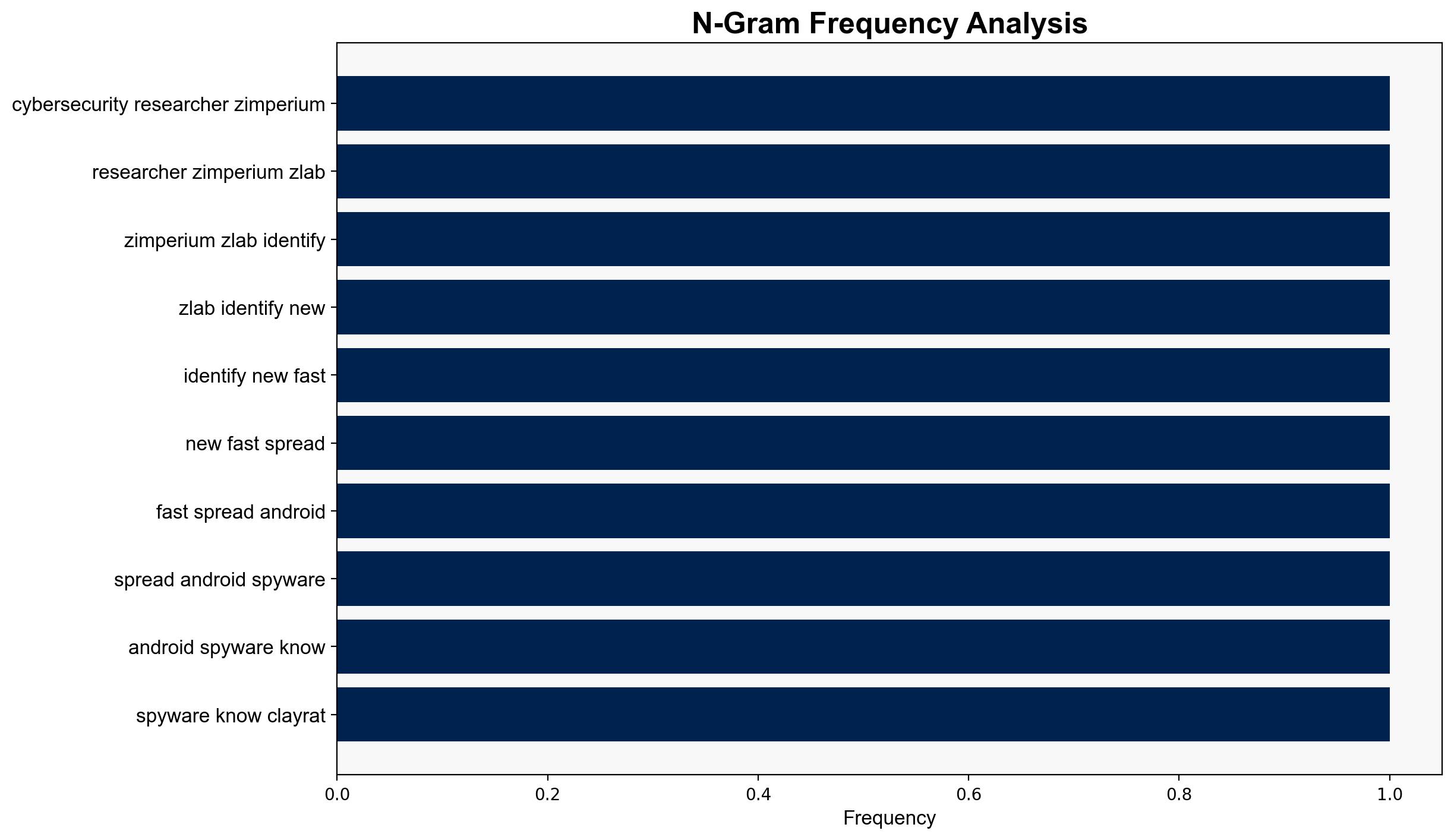Fake TikTok and WhatsApp Apps Infect Android Devices with ClayRat Spyware – HackRead
Published on: 2025-10-09
Intelligence Report: Fake TikTok and WhatsApp Apps Infect Android Devices with ClayRat Spyware – HackRead
1. BLUF (Bottom Line Up Front)
The ClayRat spyware campaign, primarily targeting Android users in Russia, poses a significant cybersecurity threat due to its rapid propagation and sophisticated social engineering tactics. The most supported hypothesis is that the campaign is a targeted operation with geopolitical motives, potentially state-sponsored, given its focus on Russian users and advanced techniques. Confidence level: Moderate. Recommended action: Enhance public awareness and reinforce security measures against unauthorized app installations.
2. Competing Hypotheses
1. **Hypothesis A:** The ClayRat spyware campaign is a state-sponsored operation aimed at gathering intelligence from Russian Android users, leveraging advanced social engineering and rapid propagation techniques.
2. **Hypothesis B:** The campaign is orchestrated by a financially motivated cybercriminal group exploiting the Russian market due to perceived vulnerabilities and high potential for financial gain.
Using Analysis of Competing Hypotheses (ACH), Hypothesis A is better supported due to the sophisticated nature of the spyware, its targeted approach, and the geopolitical context. Hypothesis B, while plausible, lacks direct evidence of financial exploitation as a primary motive.
3. Key Assumptions and Red Flags
– **Assumptions:** Hypothesis A assumes state-level resources and motives, while Hypothesis B assumes financial incentives. Both assume the efficacy of social engineering in the Russian context.
– **Red Flags:** Lack of direct attribution to a specific entity or state actor. The rapid evolution of the spyware suggests high-level technical capability, which may not align with typical financially motivated groups.
– **Blind Spots:** Limited information on the operators’ identity and the full scope of the campaign’s reach beyond Russia.
4. Implications and Strategic Risks
The campaign’s ability to self-propagate and bypass security measures poses a significant risk to individual privacy and national security. If state-sponsored, it could indicate a broader geopolitical strategy to destabilize or gather intelligence on Russian entities. The potential for global expansion increases the risk of widespread cyber espionage and economic disruption.
5. Recommendations and Outlook
- **Mitigation:** Increase public awareness campaigns about the risks of downloading apps from unofficial sources. Strengthen app verification processes on official platforms.
- **Exploitation:** Encourage collaboration between cybersecurity firms and government agencies to identify and neutralize the threat.
- **Scenario Projections:**
– **Best Case:** The campaign is swiftly contained with minimal data compromise.
– **Worst Case:** The spyware spreads globally, leading to significant data breaches and geopolitical tensions.
– **Most Likely:** Continued regional focus with sporadic global incidents, prompting increased cybersecurity measures.
6. Key Individuals and Entities
– **John Bambenek**: Provided insights on the importance of using authorized app stores.
7. Thematic Tags
national security threats, cybersecurity, counter-terrorism, regional focus





